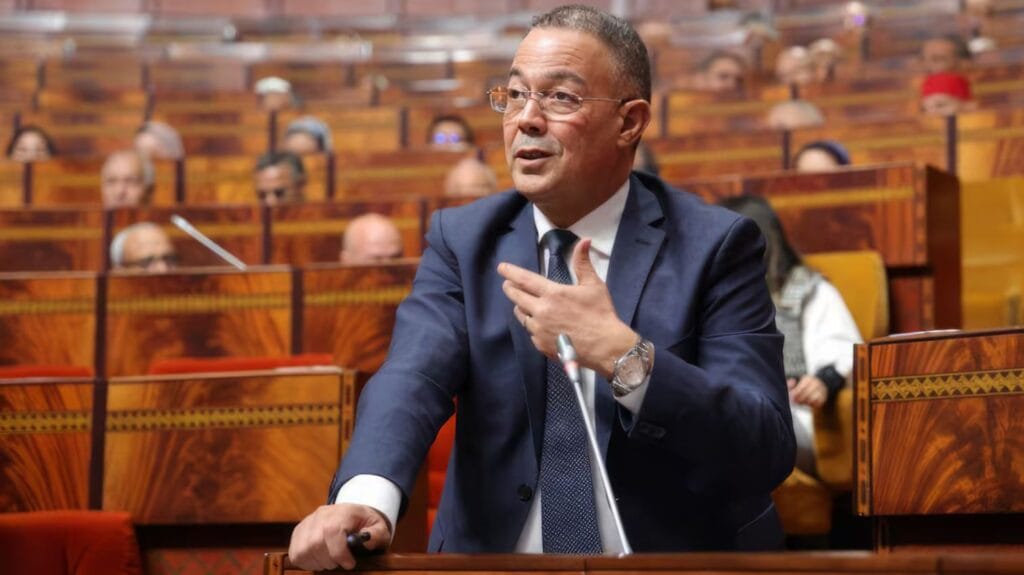Green public procurement is a cornerstone of the sustainable development strategy in Morocco, emphasized the Minister Delegate in charge of the Budget, Fouzi Lekjaa, on Monday in Rabat.
This green public procurement “symbolizes the coherence between our words and our actions by directing public spending and money towards a sustainable future, giving us more possibilities for development and more coherence in our policies,” said Mr. Lekjaa during the “Climate Smart Public Procurement Conference” for Arab countries and the MENA (Middle East and North Africa) region.
In this regard, the minister noted that green public procurement, which aims to be a cross-cutting tool touching on energy, transport, the circular economy, and social inclusion, can guide practices towards greater sustainability and send a strong signal to private operators.
For him, creating a public demand for green innovation is not only a tool for long-term economic efficiency but also a vector for the state’s exemplary nature.
Mr. Lekjaa also recalled that public finances play a leverage role in sustainable development, highlighting the efforts made to direct public spending towards projects with high environmental and social value, adjust taxation to encourage eco-responsible behaviors by developing green financing such as green sovereign bonds, and greening public procurement.
The integration of ecological and social criteria in calls for tenders notably stimulates green innovation and encourages the local entrepreneurial fabric, creating a ripple effect across the entire market, he explained.
He continued: “We are determined to make the state a model of sustainability, and we will work together to ensure that the Moroccan administration gradually integrates eco-responsible practices into its daily operations, energy consumption, waste management, public procurement, etc., demonstrating the exemplary nature of the administration to all societal actors.”
For his part, the Regional Director for Prosperity at the World Bank for the MENA region, Nadir Mohamed, presented a comprehensive vision to transform environmental challenges into opportunities for economic development, indicating that the MENA region is particularly vulnerable to the effects of climate change but has considerable assets to become a leader in the green economy.
In this regard, he emphasized the central role of public procurement in this transformation. “In the MENA region, public purchases represent an average of 18% of GDP. Directing this financial mass towards environmentally friendly goods, services, and infrastructure can create a major ripple effect across the entire economy and stimulate the emergence of competitive green sectors. The World Bank is committed to supporting this transition through targeted financing and tailored technical assistance.”
Mr. Mohamed detailed the World Bank’s strategy to assist countries in the region in this transition. According to him, it is an approach combining three dimensions: strengthening regulatory frameworks to institutionalize sustainable public procurement, developing the technical capacities of public buyers, and promoting innovation through pilot projects.
For her part, the Director of the French Development Agency (AFD) in Morocco, Quiterie Pincent, highlighted the AFD’s approach to green public procurement. “Our strategy is based on three pillars: financing projects with high environmental value, providing technical assistance to public institutions, and supporting innovative local initiatives,” she explained.
Ms. Pincent noted that the Agency has developed tools to assess the climate impact of public procurement that systematically integrate climate considerations into public purchasing processes and ensure rigorous monitoring of results.
“The AFD also mobilizes dedicated technical assistance to support public institutions in developing their sustainable purchasing strategies,” she added, deeming the sharing of experiences at the international level important.
Also participating in the opening of this conference were the General Treasurer of the Kingdom, Noureddine Bensouda, the World Bank Division Director in Morocco, Ahmadou Moustapha Ndiaye, as well as Ahmed Ag Aboubacrine, Hub Manager at IsDB (Islamic Development Bank) in Morocco, Valerie Robert, Associate Director at the European Bank for Reconstruction and Development (EBRD), and Anand Kumar Srivastava, Chief Procurement (Operations) at NDB (New Development Bank).
MAP


